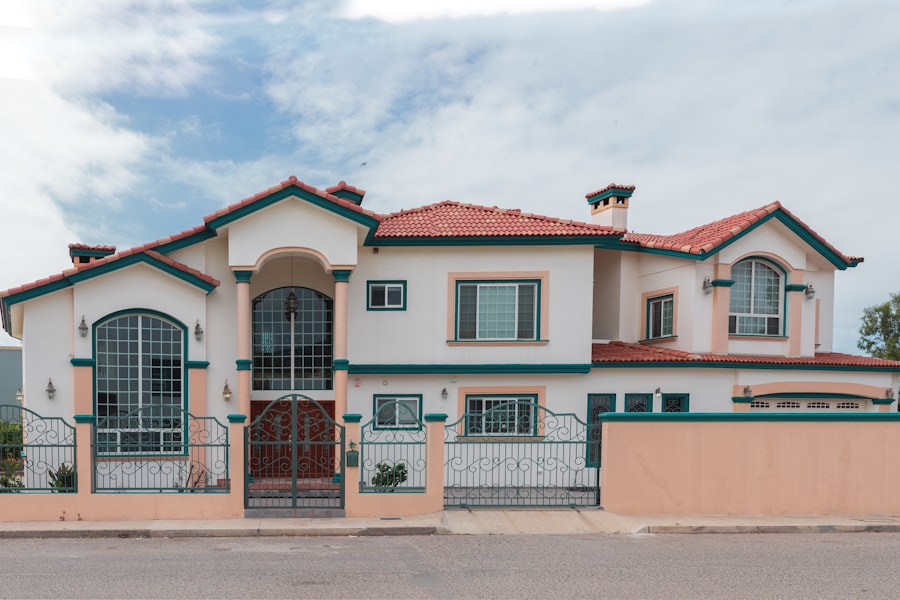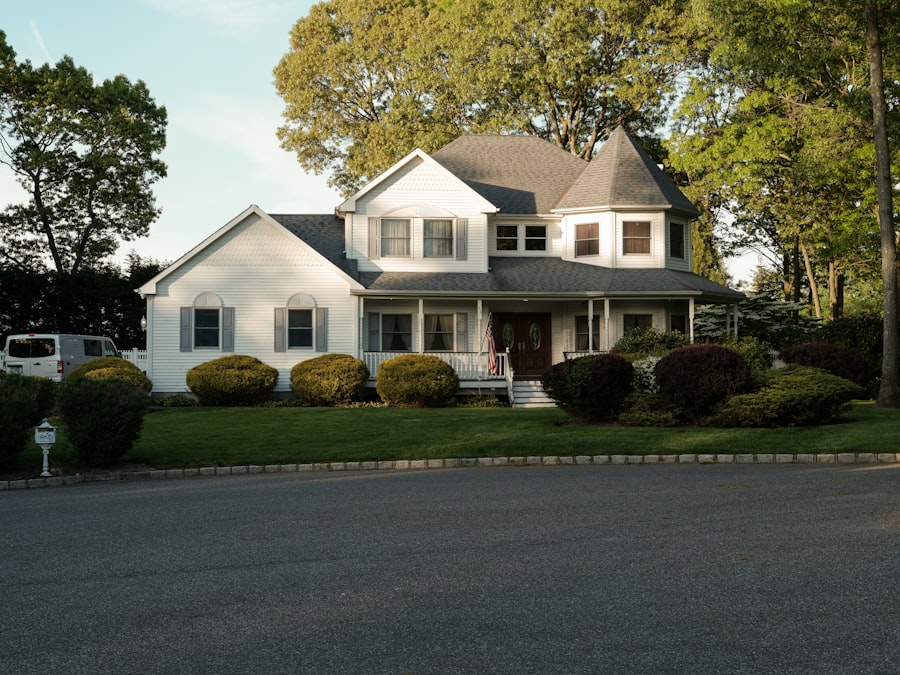Manufactured homes, often referred to as mobile homes, are factory-built structures that are transported to their final location. Unlike traditional site-built homes, which are constructed on the property where they will remain, manufactured homes are built in a controlled environment and then moved to a designated site. This method of construction allows for greater efficiency and often results in lower costs.
Manufactured homes are built according to the standards set by the U.S. Department of Housing and Urban Development (HUD), which ensures that they meet specific safety and quality guidelines. This regulatory framework distinguishes manufactured homes from other types of prefabricated housing, such as modular homes, which are built to local building codes.
The appeal of manufactured homes lies in their affordability and versatility. They come in various sizes and styles, ranging from single-section units to larger multi-section homes that can accommodate families of all sizes. Many manufactured homes offer modern amenities and customizable features, allowing buyers to select layouts, finishes, and appliances that suit their preferences.
Additionally, the construction process typically results in shorter build times compared to traditional homes, making them an attractive option for those looking to move quickly. However, potential buyers should be aware of the unique challenges associated with manufactured home ownership, such as land leasing, zoning regulations, and depreciation concerns.
Key Takeaways
- Manufactured homes offer affordable and flexible housing options.
- Research local dealers to find reputable manufacturers and models.
- Visit dealerships to see homes firsthand and assess quality.
- Compare prices, features, and financing options before deciding.
- Inspect homes thoroughly and understand after-sale services before closing.
Researching Local Manufactured Home Dealers
When considering the purchase of a manufactured home, thorough research into local dealers is essential. Start by compiling a list of dealers in your area through online searches, local directories, and recommendations from friends or family. Websites like the Manufactured Housing Institute can provide valuable resources and information about reputable dealers.
It is crucial to look for dealers who have a solid reputation within the community and positive customer reviews. Engaging with online forums or social media groups dedicated to manufactured home living can also yield insights into which dealers are trustworthy and which may have had negative experiences reported by previous customers. Once you have identified potential dealers, delve deeper into their offerings.
Investigate the brands of manufactured homes they sell, as different manufacturers may have varying levels of quality and customer satisfaction. Look for dealers that provide a wide selection of models and styles, as this will give you more options to choose from when it comes time to make a decision. Additionally, consider visiting the dealer’s website to explore their inventory, read customer testimonials, and check for any special promotions or financing options they may offer.
This preliminary research will help you narrow down your choices and prepare you for the next steps in your home-buying journey.
Visiting Manufactured Home Dealerships

Visiting manufactured home dealerships is a critical step in the home-buying process. It allows potential buyers to experience the homes firsthand and assess their quality and features. When visiting a dealership, it is advisable to schedule an appointment to ensure that a knowledgeable sales representative is available to assist you.
During your visit, take the time to explore various models on display, paying close attention to the layout, design elements, and overall craftsmanship. This hands-on experience can provide valuable insights that online research cannot replicate. While at the dealership, don’t hesitate to ask questions about the homes you are interested in.
Inquire about the materials used in construction, energy efficiency ratings, warranty options, and any customization possibilities. A reputable dealer should be transparent about these details and willing to provide you with comprehensive information. Additionally, take note of the dealership’s customer service; a friendly and knowledgeable staff can make a significant difference in your overall experience.
If possible, try to visit multiple dealerships to compare their offerings and get a sense of the market landscape in your area.
Comparing Prices and Features
| Product | Price | Feature 1 | Feature 2 | Feature 3 | Customer Rating |
|---|---|---|---|---|---|
| Product A | 120 | Yes | 10 GB Storage | 2-Year Warranty | 4.5/5 |
| Product B | 100 | No | 8 GB Storage | 1-Year Warranty | 4.0/5 |
| Product C | 150 | Yes | 15 GB Storage | 3-Year Warranty | 4.8/5 |
| Product D | 90 | No | 5 GB Storage | 1-Year Warranty | 3.9/5 |
Once you have gathered information from various dealerships, it is time to compare prices and features across different models. This step is crucial for ensuring that you get the best value for your investment. Begin by creating a spreadsheet or list that outlines the key features of each home you are considering, including square footage, number of bedrooms and bathrooms, kitchen amenities, and energy efficiency ratings.
This organized approach will help you visualize how each option stacks up against the others. In addition to comparing features, pay close attention to pricing structures. Some dealers may offer competitive base prices but charge extra for essential upgrades or add-ons that could significantly increase the total cost.
Be sure to factor in these additional expenses when evaluating your options. Furthermore, consider any financing incentives or promotions that may be available through specific dealerships or manufacturers. Understanding the total cost of ownership—including potential land lease fees or property taxes—will provide a clearer picture of what you can afford and help you make an informed decision.
Financing Options for Manufactured Homes
Financing a manufactured home can differ significantly from traditional home financing due to its classification as personal property rather than real estate in some cases. However, there are several financing options available for prospective buyers. One common route is obtaining a chattel loan, which is specifically designed for manufactured homes that are not permanently affixed to land.
Chattel loans typically have shorter terms and higher interest rates compared to traditional mortgages but can be an accessible option for many buyers. For those purchasing a manufactured home on owned land, conventional mortgages or FHA loans may be available. FHA loans are particularly appealing because they allow for lower down payments and more flexible credit requirements.
It is essential to shop around for financing options and compare interest rates from various lenders. Additionally, some manufacturers or dealerships may offer in-house financing or partnerships with lenders that specialize in manufactured home loans. Understanding your credit score and financial situation will help you determine which financing option is best suited for your needs.
Negotiating with Manufactured Home Dealers

Negotiation is an integral part of the home-buying process, and it is no different when purchasing a manufactured home. Once you have identified a model that meets your needs and budget, it is time to engage with the dealer on pricing and terms. Start by expressing your interest in the home while also indicating that you are exploring other options at different dealerships.
This approach can create leverage during negotiations as dealers may be more inclined to offer competitive pricing to secure your business. When negotiating, be prepared to discuss not only the price of the home but also any additional costs associated with delivery, installation, or upgrades. Dealers may have some flexibility in these areas, especially if they are eager to close a sale.
It is also wise to inquire about any warranties or after-sale services included in the purchase price; these factors can add significant value to your deal. Remember that negotiation is a two-way street; being respectful and open-minded during discussions can foster a positive relationship with the dealer while also increasing your chances of securing favorable terms.
Inspecting and Closing the Deal
Before finalizing your purchase of a manufactured home, conducting a thorough inspection is paramount. This step ensures that the home meets your expectations in terms of quality and functionality. During the inspection process, pay close attention to details such as structural integrity, plumbing systems, electrical wiring, insulation quality, and overall craftsmanship.
If possible, consider hiring a professional inspector who specializes in manufactured homes; their expertise can uncover potential issues that may not be immediately visible. Once you are satisfied with the inspection results, it is time to move forward with closing the deal. This process typically involves signing various documents related to financing, warranties, and ownership transfer.
Ensure that you carefully review all paperwork before signing; understanding your rights and responsibilities as a homeowner is crucial at this stage. Additionally, confirm any agreements made during negotiations regarding pricing or included services are documented in writing. After closing, keep copies of all relevant documents organized for future reference.
After-Sale Services and Maintenance
After purchasing a manufactured home, understanding after-sale services and maintenance requirements is essential for ensuring long-term satisfaction with your investment. Many reputable dealers offer warranties that cover specific components of the home for a designated period; familiarize yourself with these warranties and what they entail. Knowing what is covered can save you significant costs if issues arise shortly after purchase.
Regular maintenance is also vital for preserving the condition of your manufactured home over time. This includes routine inspections of plumbing systems, HVAC units, roofing materials, and exterior siding. Establishing a maintenance schedule can help identify potential problems early on before they escalate into costly repairs.
Additionally, consider joining local manufactured home communities or online forums where homeowners share tips on upkeep and maintenance best practices specific to manufactured homes. Engaging with fellow homeowners can provide valuable insights into maintaining your home’s value while enhancing your overall living experience.



